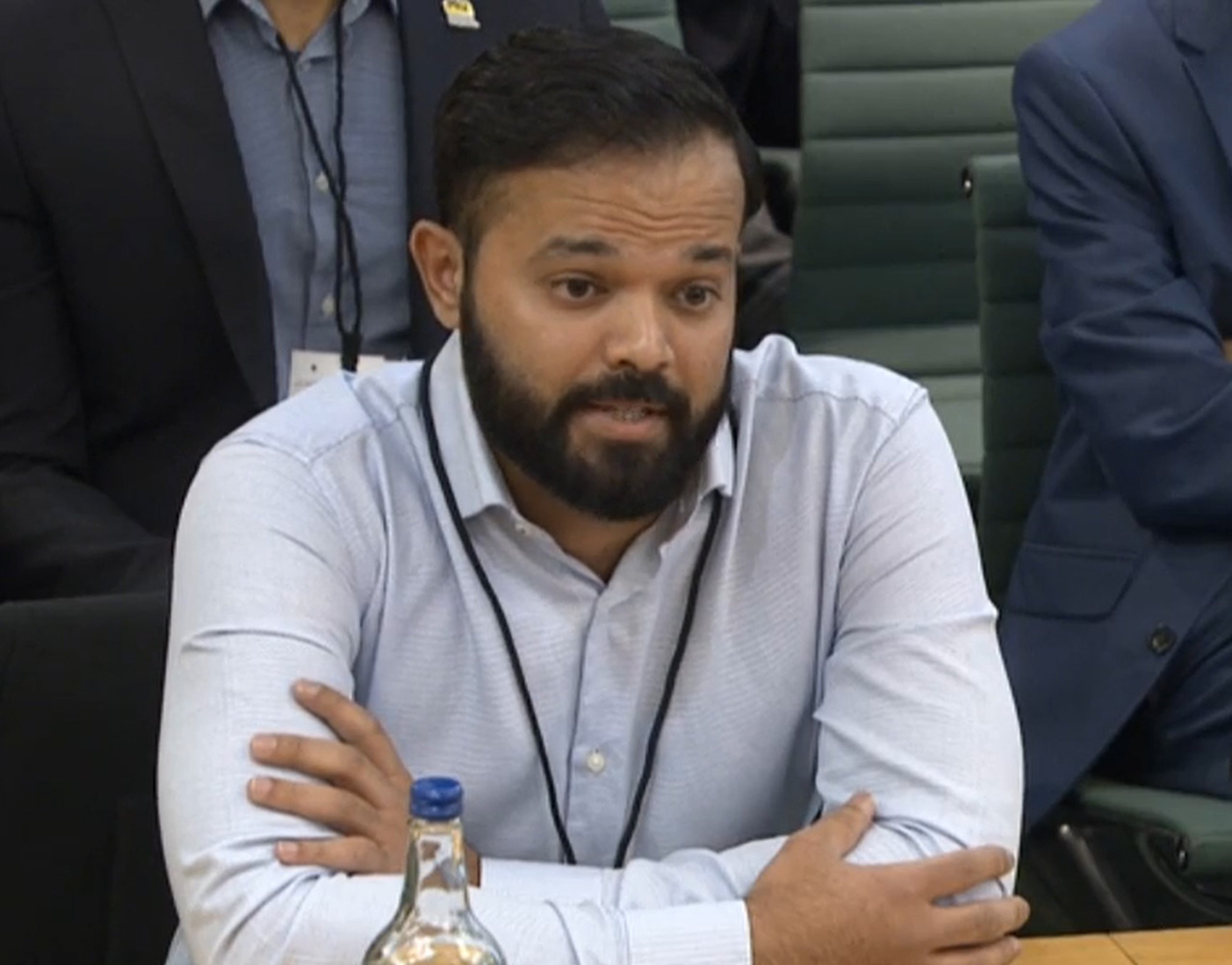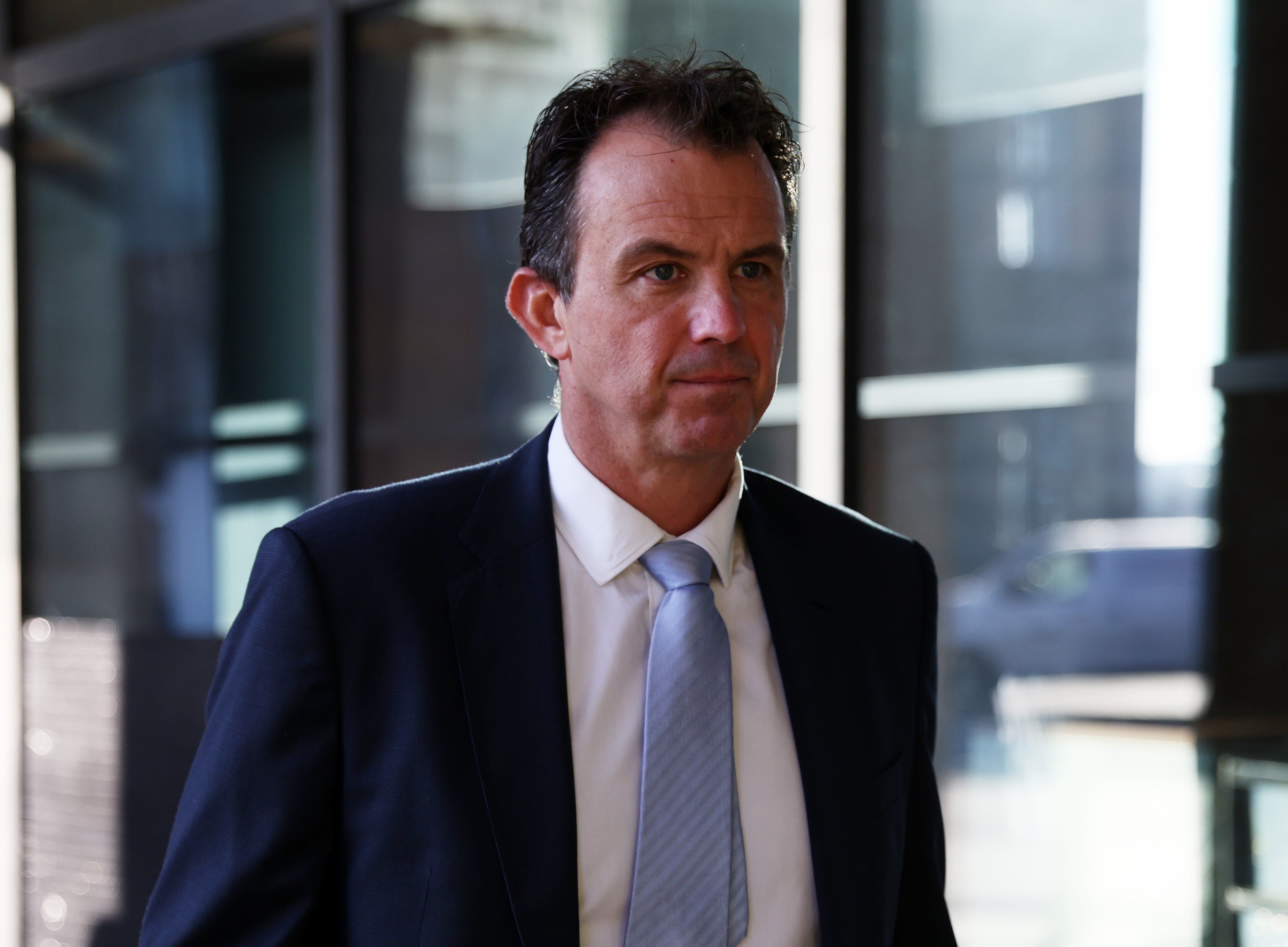Cricket still ‘in a lot of denial’ over racism, Azeem Rafiq claims
The sport has been ordered to clean up its act or face funding cuts in a new parliamentary committee report

Your support helps us to tell the story
From reproductive rights to climate change to Big Tech, The Independent is on the ground when the story is developing. Whether it's investigating the financials of Elon Musk's pro-Trump PAC or producing our latest documentary, 'The A Word', which shines a light on the American women fighting for reproductive rights, we know how important it is to parse out the facts from the messaging.
At such a critical moment in US history, we need reporters on the ground. Your donation allows us to keep sending journalists to speak to both sides of the story.
The Independent is trusted by Americans across the entire political spectrum. And unlike many other quality news outlets, we choose not to lock Americans out of our reporting and analysis with paywalls. We believe quality journalism should be available to everyone, paid for by those who can afford it.
Your support makes all the difference.Azeem Rafiq believes cricket is still living “in a lot of denial” about the problem it faces with racism.
The former Yorkshire player blew the whistle on the abuse he suffered at the county across two spells between 2008 and 2018, with the club’s initial handling of his allegations heavily criticised and leading to the loss of sponsors and the right to host international matches at their Headingley ground.
The Digital, Culture, Media and Sport (DCMS) committee has recommended in a new report that cricket’s public funding be limited if it fails to “clean up its act” and rid the sport of racism.
Rafiq is impressed by the changes brought about at Yorkshire by their new chair, Lord Kamlesh Patel, since his appointment in November but is less convinced about how serious the wider game is about tackling the issue.
“I see Yorkshire trying to do the right thing, but I do feel like the game as a whole is still living in a lot of denial,” he told BBC Radio 5 Live. “I think the ECB needs to do more. I would say putting an action plan on a document, we’ve seen all that before. We need to see more action.”
DCMS committee chair Julian Knight told the PA news agency that “the jury is out” on the England and Wales Cricket Board and its chief executive Tom Harrison.
In addition to a limit on funding, Knight says his committee will push for independent regulation of the sport if it is dissatisfied with the progress the ECB is making on the issue.
The ECB is considering its role as a regulator as part of a governance review, and Rafiq believes it is wrong that the governing body should serve as promoter and regulator of the sport.
He added: “I don’t think the ECB can be the regulators as well as the promoters of the game moving forward, as shown by my situation.
“Doing both of them just gets really confusing and it’s just not good practice.”
ECB chief Harrison says he welcomes parliamentary scrutiny and wants cricket to become the “exemplar” for others to follow.
The governing body produced a 12-point plan to tackle discrimination in the sport, which came after Rafiq set out harrowing detail to the committee in November of the racial abuse he suffered.
The select committee has asked the ECB to provide it with quarterly updates on its progress, and appear before it early this year.
Harrison said on Friday: “We welcome the scrutiny. It’s obviously been a difficult few months for us, with the allegations and various stories it’s been very painful.
“We have the opportunity to come out of this crisis with a roadmap that demonstrates that first of all we are absolutely serious about tackling discrimination in our sport – not just racism – and that we can come together as a game and do that as a partnership.

“We want the Government to hold us to account and when we are able to demonstrate that we can tackle this, do it meaningfully, perhaps we will be less of the sport under the spotlight and more the exemplar in terms of how we deal with really complicated and difficult issues in our sport.”
A spokesperson for the DCMS department said: “There is no place for discrimination in society and we want to see clear and sustained evidence of cultural change in the sport.
“We will now consider the report’s recommendations and continue to hold the ECB and Yorkshire to account and take further action if necessary.”
The report praised Lord Patel’s efforts in changing the culture at Yorkshire since his appointment in November.
However, the committee wants to hear from him early this year and will be asking about the role that the Colin Graves Trust continues to play.
I would question very closely the position of the Graves Trust within Yorkshire, or whether or not it should continue to have the influence and power that it does.
Lord Patel’s predecessor, Roger Hutton, told the committee in November he had wanted to remove former chief executive Mark Arthur and director of cricket Martyn Moxon over how they responded to the findings of an independent investigation into Rafiq’s complaints of racial harassment and bullying.
However, Hutton claimed he was prevented from doing so by the trustees.
Knight said until there was clarity around the role of the Trust, he did not think Yorkshire should have their rights to host international matches restored.
“I would question very closely the position of the Graves Trust within Yorkshire, or whether or not it should continue to have the influence and power that it does,” he said.
Lord Patel has warned the failure to reinstate international fixtures at Headingley would lead to a “financial crisis” at Yorkshire.
Join our commenting forum
Join thought-provoking conversations, follow other Independent readers and see their replies
Comments